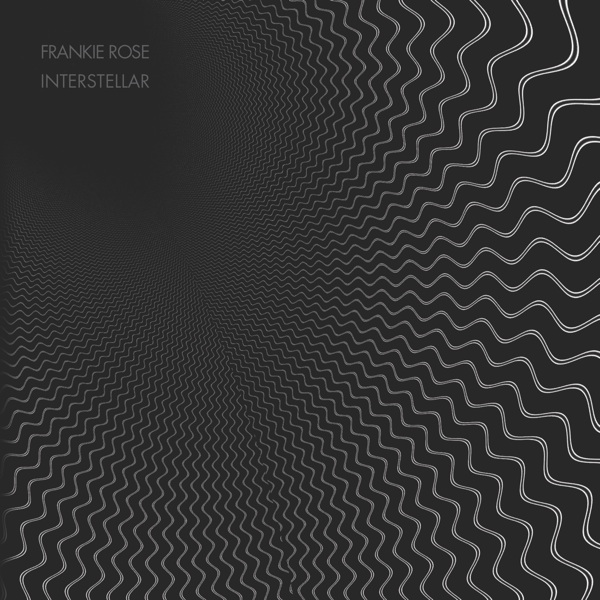Stating the obvious, but essential: Frankie Rose has done a lot of growing/improving/learning/whatever between Frankie Rose & The Outs’ 2010 self-titled record and the Brooklyn musician’s new effort, Interstellar. The self-titled exhibited Rose’s excellent songwriting, but it sometimes languished in that catchy, sure, but all-too-familiar lo-fi, jangly, 60s-surf-rock revival bug that was going around. Not that those sounds aren’t present on Interstellar, but throughout the record they intertwine and interact with dense, lush synths. It’s as if Rose spent the last year-and-a-half in like a DIY isolation chamber with some John Maus, Ariel Pink, and, for good measure, Juliana Barwick records. The result, Interstellar is gorgeous, and Rose’s finest work to date.
Throughout Interstellar Rose’s guitar has this great open, oblong sound that gets nice and cozy with the layers of synths flowing around it. Her voice, a strong alto that can comfort just as well as it can seduce, is often tinged with reverb, so that it envelops the song but drifts away soon after. On the low end, the bass bounces along and the drums hit with this air-tight compression, the kick and toms given little space to reverberate out into the rest of the song. It can sound rigid for sure — the snares on “Daylight Sky” hit with a claustrophobic smack, while the bass bobs and weaves as if its trying to get out — but Rose uses that solid foundation as a way to build these dense, well-textured tracks that never overwhelm.
The balance that Rose finds between all these various elements allows Interstellar to take on several different forms — both within songs and throughout the album — without feeling too scattered. The title track, and opener, begins with spacey synths dotted with twinkling chimes before the drums crash in, count down, and launch the song into hyper-drive (overuse of space-related terms absolutely intended). That jumping-and-flailing-around-as-dancing inducing pop shows up as well on phenomenal first single “Know Me,” which is just a textbook display of Rose’s songwriting prowess, as well as “Night Swim,” with its guitars that swoon in arpeggios and careen and clang like shots in the dark. The atmosphere surrounding the pop and pep on Interstellar though is so vast that it creates that shoe-gazing despondency like on “Moon In My Mind” and “Had We Had It” — that it sounds like Rose is singing “Happy, happy, happy, happy / We had it all,” during the chorus on the latter, instead of the actual line, “Had we, had we, had we, had we / We had it all,” is wonderfully tragic.
Interstellar‘s top-notch musicianship does make it easier to overlook some of the less than striking lyricism. “Know Me” is a classic example of a melody and hook being so good that they render the nonsense of its chorus (“Know me don’t know me / I hear what they said / It doesn’t own me / I’d rather be dead”) completely moot. Same with the platitudes on “Gospel/Grace” (“So blue / dreamt of you” or “Never knew you / Things aren’t what they seem”), an otherwise excellent track with a stellar instrumental build that grows from drums and layered vocal trills (also, that track’s opening, descending riff will forever remind me of the “He Needs A Kidney” charity song from 30 Rock — but that’s besides the point). But nowhere on Interstellar is this more noticeable than “Pair of Wings,” which finds Rose singing more or less the same, not-incredibly-profound phrase over and over, but around it the song expands from pretty much nothing into this all enveloping chorus of “ahhs” and synths that blare like a full horn section and Rose still singing “All that I want is / A pair of wings to fly / Into the blue of / A wide open sky / Show me your scars / I’ll show you mine / Perched above the city on / A pair of power lines.” It’s the album’s most gut-wrenching moment, and that line becomes an absolute killer.
That Interstellar’s last track, “The Fall,” ends with an cleverly deployed cello, wandering guitar picking, and Rose singing a few “Hallelujah”s, is surprisingly apt. The entire record feels like it belongs in a sanctuary or something. It’s big, open, cavernous, so much so that it feels like it could swallow you entirely, and so you let it because it’s comforting, warm, and safe.

